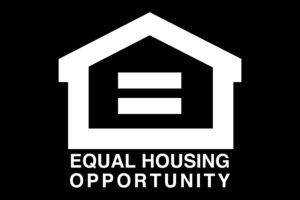Mortgage terms are the conditions that are set in a mortgage agreement between a borrower and a lender. These terms can vary depending on the type of mortgage, the borrower’s credit score, and the lender’s policies. It is important to understand the mortgage terms before signing a mortgage agreement to avoid any kind of future problems. The following are common mortgage terms you may come across during the homebuying process.
1. Interest Rate: The interest rate is the fee that the lender charges the borrower for borrowing their money. It is usually expressed as a percentage of the loan amount. The interest rate can be fixed or adjustable. A fixed interest rate remains the same throughout the mortgage term, while an adjustable interest rate can change according to market conditions.
2. Down Payment: The down payment is the upfront amount of money that the borrower pays to the lender. It is usually expressed as a percentage of the total purchase price of the property. The down payment can vary depending on the type of mortgage, but it is usually between 3% and 20%.
3. Loan Term: The loan term is the length of time the borrower has to repay the loan. The loan term can vary depending on the type of mortgage, but it is usually between 15 and 30 years. A shorter loan term means higher monthly payments, but it also means the borrower will pay less interest over the life of the loan. Ask your lender about flex terms which allow for a specific number of years such as 18, 21, 28, etc.
4. Loan Amount: The loan amount is the total amount of money the borrower is borrowing from the lender. The loan amount can vary depending on the type of mortgage, the borrower’s income and credit score, and the lender’s policies.
5. Closing Costs: Closing costs are the fees associated with closing the mortgage. They include appraisal fees, title search fees, escrow accounts, and other costs associated with closing the loan. Closing costs can vary depending on the type of mortgage, the property location, and other factors.
6. Private Mortgage Insurance (PMI): PMI is a type of insurance that the borrower may be required to pay if they do not have a large enough down payment. PMI protects the lender in case the borrower defaults on the loan. The cost of PMI can vary depending on the loan amount and the borrower’s credit score.
7. Annual Percentage Rate (APR): The APR is the total cost of borrowing money, including the interest rate and other fees. The APR takes into account the interest rate, the loan term, and the other fees associated with the mortgage. It is usually expressed as a percentage of the loan amount.
8. Prepayment Penalty: A prepayment penalty is a fee that the borrower may be charged if they repay the loan before the end of the loan term. The prepayment penalty can vary depending on the type of mortgage and the lender’s policies.
9. Escrow: Escrow is a type of account that the lender may require the borrower to set up to pay for property taxes and homeowners insurance. The borrower makes monthly payments into the escrow account, and the lender pays the property taxes and insurance from the account when they are due.
10. Mortgage Points: Mortgage points are fees that the borrower may pay to the lender in exchange for a lower interest rate. One point is equal to 1% of the loan amount. Paying mortgage points can lower the monthly payments and the total cost of borrowing money.



